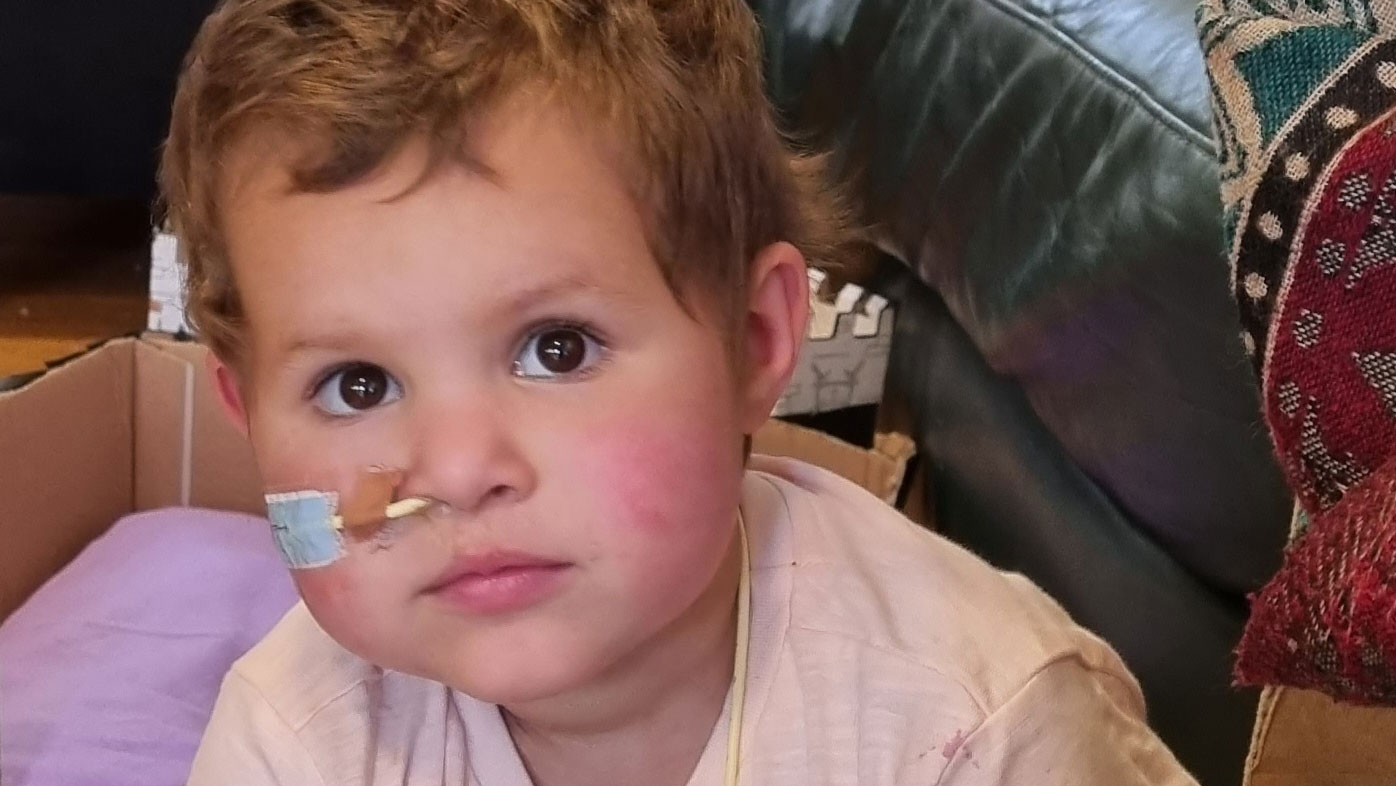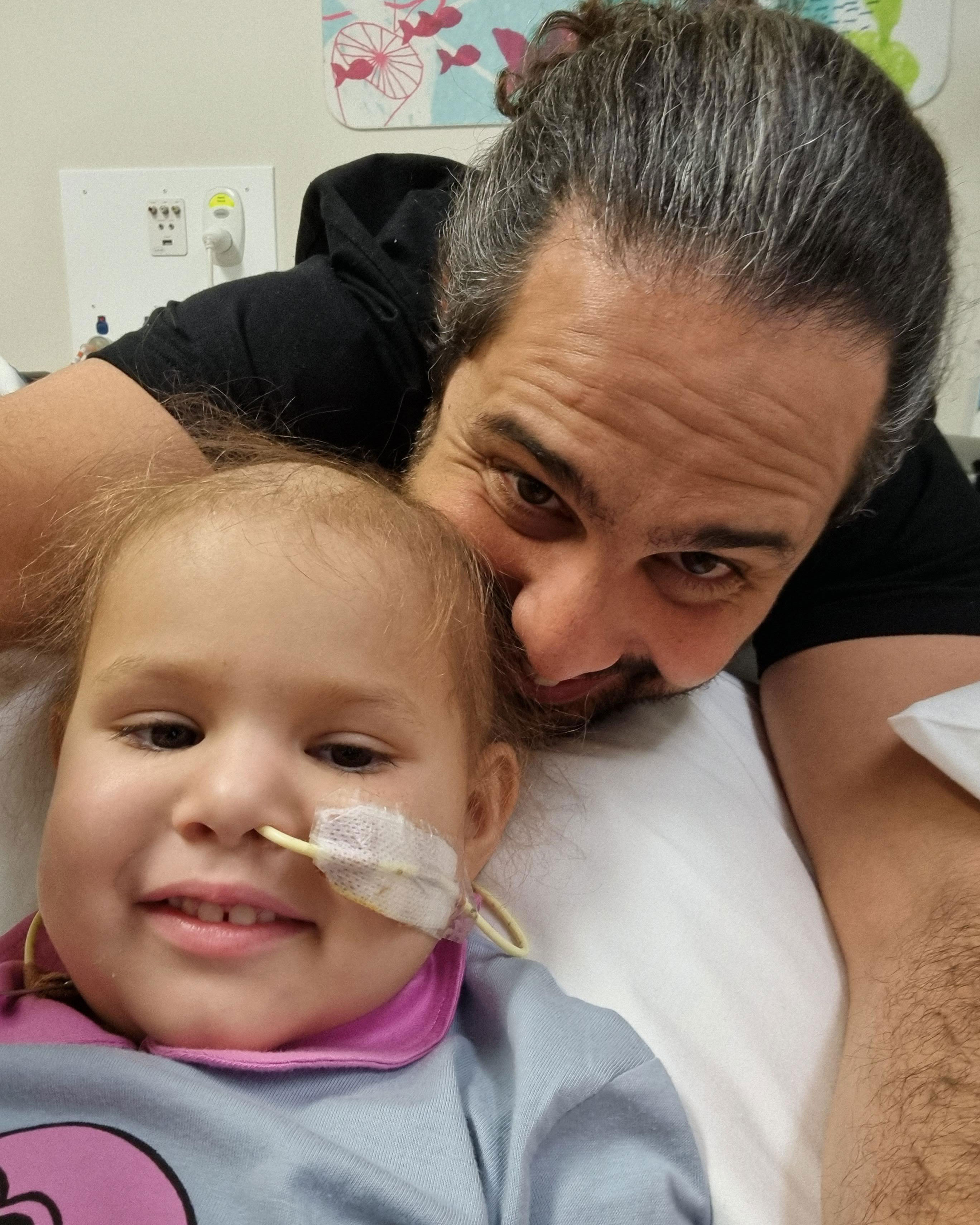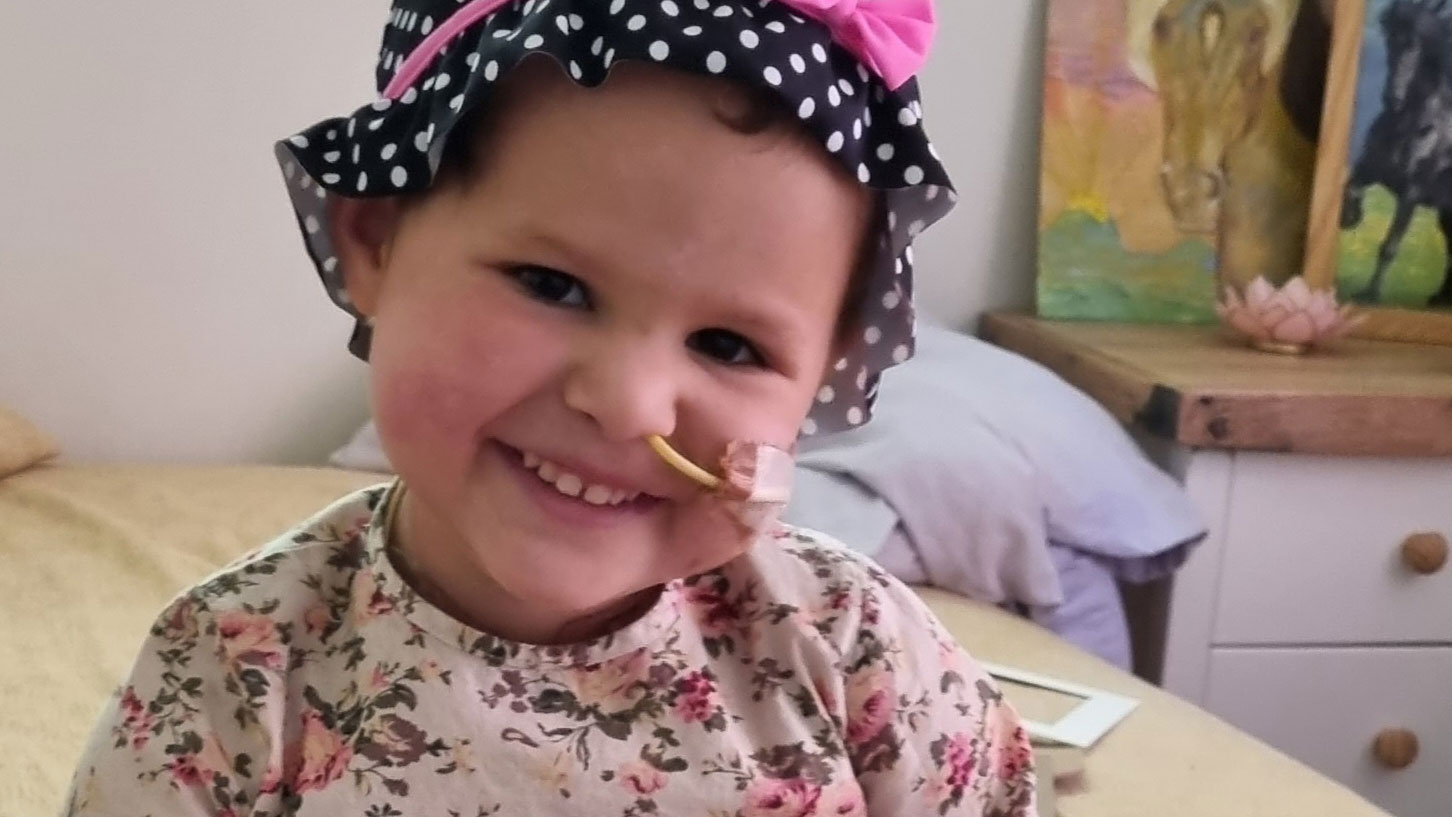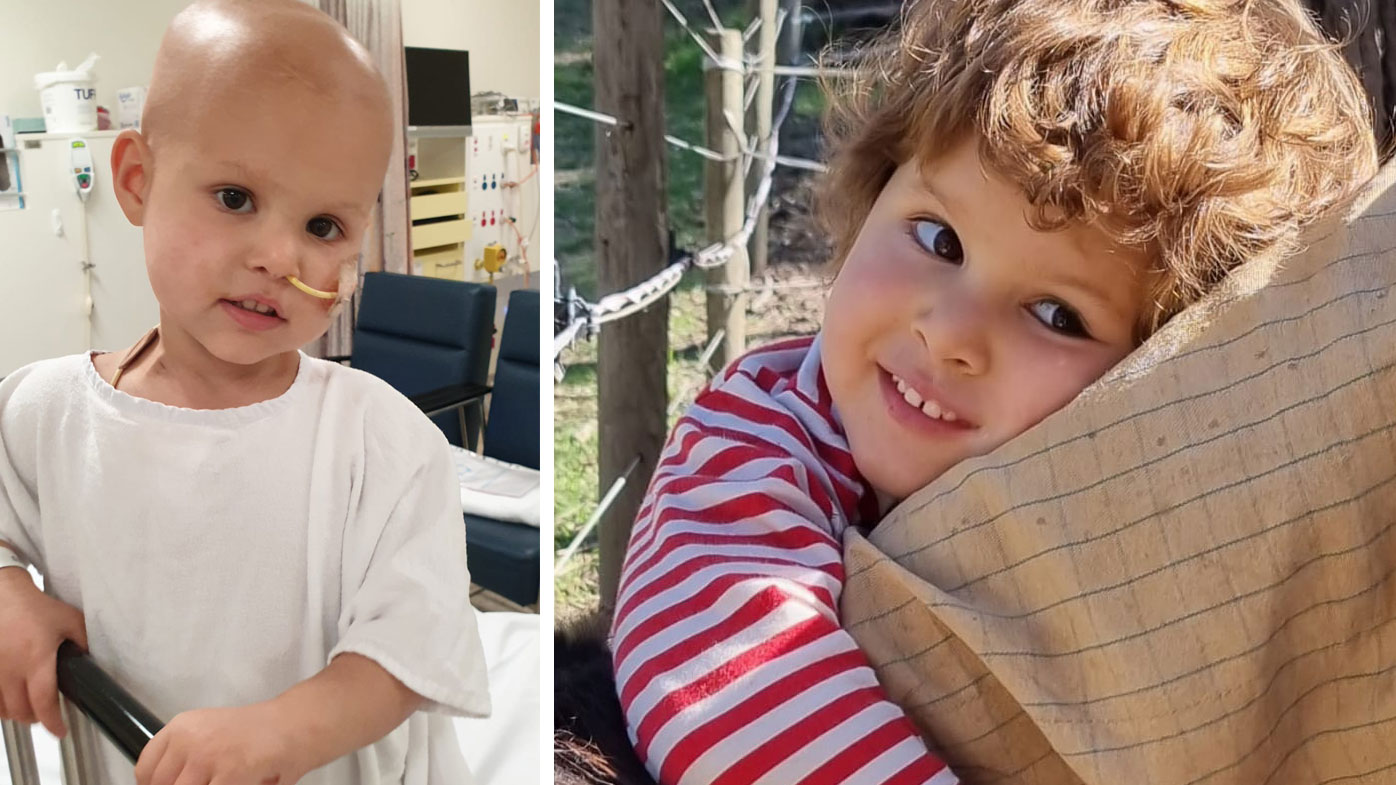The parents of a four-year-old Melbourne girl are facing an enormous task of raising $300,000 to pay for a bone marrow transplant which could save her life.
Uma Tomarchio, who has an aggressive form of leukaemia, was born in Australia and has spent her whole life here.
However, Uma does not qualify for Medicare – which would normally cover most of the cost of her much-needed transplant – because her parents are Italian.
Uma's parents moved to Australia almost seven years ago and the family of four, including Uma's older sister, have been living here on a temporary skilled work visa.
READ MORE: Coles hikes prices of own-brand milk by up to 60 cents
A child born in Australia does not automatically become a citizen unless their parents are already citizens. Under Australian immigration rules, children born in Australia are not eligible to apply for citizenship until they are 10 years old.
Uma's father, Giuseppe Tomarchio, said his daughter was first diagnosed with leukaemia in May 2020.
Tomarchio's private health insurance covered most of the costs associated with his daughter's chemotherapy at the Royal Children's Hospital and she initially responded well to the treatment, he said.
"Uma was in remission for about a year and we thought we were seeing the light at the end of the tunnel," Tomarchio said.
Uma's chemotherapy treatments were due to end in October this year, but a few months ago, in May, doctors told the family some devastating news.
"We had gone in for a check-up and the hospital called me back, they told me she had relapsed," he said.
"It was really emotional, honestly for me it was worse than the first time," Tomarchio said.
Uma's cancer had come back in a more aggressive form, known as acute myeloid leukaemia. Her doctors believe the mutation was likely a rare side effect of her initial chemotherapy treatment.
Tomarchio said he was told by doctors his daughter's best chance of avoiding another relapse and beating the cancer now rested with more chemotherapy and a bone marrow transplant, which would cost hundreds of thousands of dollars.
"It was a big shock to hear that it would cost $300,000. That is a big number," he said.
Over the next few weeks it became clear Tomarchio's health insurance would not foot the bill for the bone marrow transplant and the family would have to pay it all themselves.
The Royal Children's Hospital asked for a deposit of half of the cost of the transplant in order to proceed, he said.
Tomarchio said he was grateful for all of the care his daughter had received and he understood the hospital's hands were tied in Uma's case.
"We are so thankful for everything they have done and I don't have any resentment towards anybody, I understand that it is not anyone's fault," he said.
Both Uma's parents and her sister have been deemed incompatible bone marrow donors for her, but the hospital has found a matching donor which could be used for a transplant next month.
An online fundraiser, set up by a family friend, has so far raised almost $70,000 towards Uma's transplant.
Tomarchio, who runs his own business in the construction industry and employs 20 Australians, said he was grateful for the support he had received.
"We have lived here for years and are part of the school and local sport community but I am really stunned with how everyone is responding, I'm so thankful."
The money raised has allowed the family to put down a deposit to secure the donor bone marrow, but the hospital had asked for $70,000 more to be paid by the end of the month, Tomarchio said.
To make matters more urgent, Uma had started having seizures as a side effect of her chemotherapy.
"We thought she was doing ok, she was out of the hospital," he said.
"But a few weeks ago she had a seizure. She was half paralysed, not breathing or talking and we had to call the ambulance and we ended up in emergency."
While doctors reassured the family Uma would be ok, she has since had a second seizure requiring another trip to hospital.
Tomarchio said his daughter had been incredibly strong, despite all of her setbacks.
"She is so tough, she is teaching us resilience," he said.
"As soon as she has a bit of energy she wants to play.
"Even when we are in the hospital full of machines attached to her body she wants to climb on chairs and put stickers on the wall.
"And she loves her barbies, she has about 250 barbies."
Tomarchio said his family were working towards becoming permanent residents in Australia.
After coming to Australia on a tourist visa, and then living on a student visa while studying English and business courses, Tomarchio was just about to apply for a permanent skilled visa when Uma got sick in 2020.
Tomarchio was advised by his migration agent that any application for permanent residency was likely to be refused by the Department of Home Affairs because Uma would be considered an economic burden.
On the migration agent's advice, Tomarchio applied for a temporary working visa instead, which was initially refused because of Uma's illness, but granted on appeal.
Contact reporter Emily McPherson at [email protected].
Source: 9News






